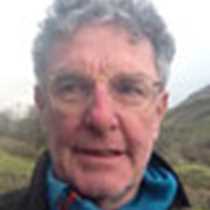Islas Cies and Baiona, Galicia, Spain
Blessed by yet another day of sunshine, we anchored on the east side of the Illa do Norte, being one of three islands comprising the Cies Archipelago . This ria (broad indented estuary) coastline of Galicia is characterized by clustered islands rising from the sea as resistant granite outcrops. Their particular ecologies, cool, nutrient-rich waters with a corresponding range of marine habitats have been acknowledged with a designation as the Galician Atlantic Islands National Land and Sea Park.
The islands close to visitors on the 1st October. We were privileged to have access, the zodiacs delivered us to a stretch of pale yellow sand on a receding tide. Park Rangers welcomed us and local guides - young marine science graduates, our historians and bird specialist were on hand to lead the explorations. For the extra energetic a lighthouse, Faro de Cies was the goal. This archipelago is noted for its populations of European shags, yellow legged gulls and amongst the migratory species we identified stonechats. It was the gulls which vied with us for beach space.
For the majority of guests it was the opportunity to take in the beach views, traverse the dune boardwalk, and for two brave-hearts enter the clear, bluish, chilly waters, and for some hours believe that this is a paradise. The London Guardian newspaper described this very beach as the best in the world.
Our afternoon re-positioning located us in the fishing and leisure port of Baiona. A chance to explore an out-of–season resort, medieval street or just watch the languid fishing vessels offered welcome down time.
The evening’s major event was dinner in the parador, a traditional style hotel, built some twenty years ago in an extensive park land enclosed by 17th century fortifications. Grand views make this an exceptional venue. Seven o’clock is very early for Spanish dinner and appropriately (!) our menu title was lunch. Tapas and Galician white wine on the terrace cultivated bonhomie. At close of evening a richly animated group of explorers departed the Spanish mainland for a gentle night-time passage to Oporto: there was much singing in certain zodiacs.




